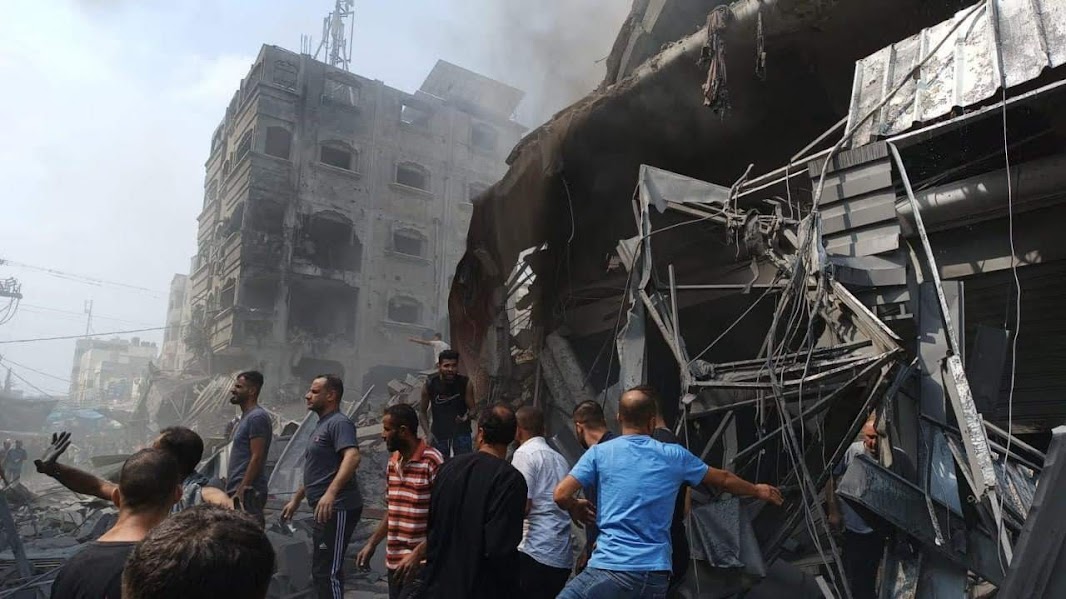Sudan: Between the Clutches of Creative Chaos By Ismail Haggana
*Translated from Arabic by Ibrahim Ebeid

Sudan: Between the Clutches of Creative Chaos
By Ismail Haggana
January 26, 2024
The rapid and successive developments in one of the most severe humanitarian crises in the world, the conflict between the Sudanese Armed Forces and the Rapid Support Forces, which erupted on April 15, 2023, plunged Sudan into the abyss of chaos and severe and successive crises. The country is in deep turmoil. As we approach the first anniversary of the outbreak of this devastating war, the statistics paint a horrific, bleak, and even catastrophic tragedy: nearly 7.6 million displaced people, more than 13,000 people missing, and a nation struggling with a cholera outbreak unprecedented in Sudan’s history. This crisis not only symbolizes a national tragedy but also poses a significant challenge to the international community, especially the friends of Sudan, who expect the Sudanese people to take serious action to save what can be kept from the clutches of destruction and devastation.
The scale of displacement resulting from this conflict is unparalleled. Some 7.6 million people, including a large number of children, have fled their homes to seek refuge within and outside Sudan’s borders. Sudan has the most significant number of displaced people globally, including the world’s largest child displacement crisis.
Internally, according to reports by the United Nations Office for the Coordination of Humanitarian Affairs (OCHA) and the International Organization for Migration (IOM) Tracking Matrix, which clearly spoke of the displacement of approximately 6.1 million people in all eighteen states, with a remarkable increase of 19,600 people in the second week of January 2024 alone. These IDPs find themselves in 6,355 different locations across Sudan, with the majority (67 percent) residing in host communities. We see the most prominent displaced people in South Darfur, the Nile River, and East Darfur through monitoring, follow-up, and documented reports.
In addition, an estimated 1.5 million people have sought asylum in neighboring countries, highlighting the regional impact of this crisis.
The human cost of this conflict is staggering. According to reports by ACLED and the Port Sudan Ministry of Health (FMOH), more than 13,000 people have been killed and 26,000 injured since April 2023. This loss of life underscores the brutal nature of the conflict and its devastating impact on Sudanese society.
Further complicating the situation is the severe cholera outbreak, where more than 9,700 suspected cases and 269 deaths were reported as of 16 January 2024. The spread of cholera, amid the challenges of displacement and limited access to clean water and sanitation, is a public health problem. The emergency situation in the Sudan requires immediate attention.
In response to the crisis, health partners provided medical assistance to 2.6 million patients and 1.8 million outpatient consultations across Sudan. However, the Sudan Humanitarian Needs and Response Plan 2024 suffers from severe underfunding, with only “3.1 percent” of the funds requested as of 21 January 2024 secured.
The crisis in Sudan is not just a national tragedy; it is a test of the international community’s commitment to humanitarian principles and human rights. The plight of millions of displaced Sudanese, the loss of thousands of lives, and the ongoing health emergency call for a coordinated global response. Adequate funding for humanitarian assistance, solid diplomatic efforts to resolve the conflict, and long-term strategies to support displaced people and affected communities are urgently needed.
While the world watches, the situation in Sudan requires not only our attention but also our immediate and vigorous action. We are aware of the dangers of this crisis, which has become regional and transcended. This is a stark reminder of the consequences of conflict and the need to pay attention to the issues of peace, stability, and compassion in our global community.
*Translated from Arabic by Ibrahim Ebeid.





